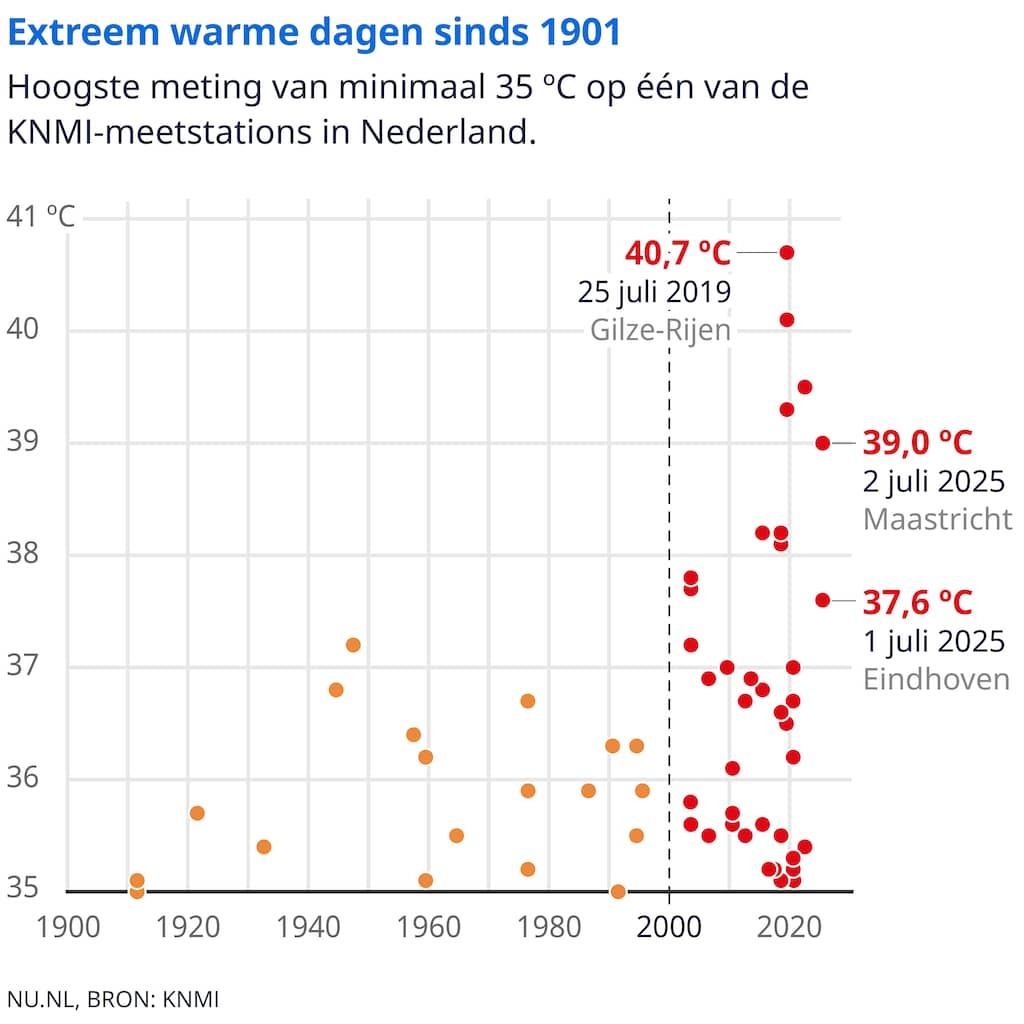
The extreme temperatures experienced by the Netherlands and the rest of Europe last week are occurring every two to five years due to climate change. Maximum temperatures in various cities were up to 4 degrees higher than would have been the case without climate change.
In London, it was about 3.95 degrees warmer than without climate change. In Paris, that difference was about 3.7 degrees. In other cities, the difference was smaller, but still more than 2 degrees, climate scientists write on Wednesday in an initial study into the heatwave.
That extra warming during the heatwave of late June and early July is estimated to have caused fifteen hundred extra deaths, researchers estimate based on mortality rates during previous heatwaves in Europe. This made the heatwave three times as deadly.
The number of deaths from extreme heat is difficult to calculate because it is not always clear whether someone has succumbed to the heat. But European mortality figures show that heatwaves lead to extra deaths. Usually, those kinds of figures are only available long after extreme heat.
But based on models, it is quite possible to make an estimate now, says KNMI researcher Sjoukje Philip, who was involved in the research. According to her, the relative increase in the number of deaths at more extreme temperatures is well-founded. “So the fact that three times as many deaths are now occurring as in the situation before, when it was not so hot.”
In the Netherlands, mortality from heat appears to have decreased in recent years, the RIVM recently reported. This is probably due to better preparation for extreme temperatures, for example through a national heat plan.
But scientists warn that heat is still very deadly, especially if extreme temperatures increase further due to climate change. “This research shows that every fraction of a degree of warming makes a huge difference,” says Garyfallos Konstantinoudis of Imperial College London. “Seemingly small changes cause hotter heat waves and a huge increase in the number of heat deaths.”

Last Tuesday and Wednesday, maximum temperatures were recorded in the Netherlands that had not occurred throughout the twentieth century.
The KNMI warns that the temperature during extreme heat waves can rise to 45 degrees if the global climate warms by 2 degrees. Currently, that is about 1.3 degrees and the world is heading for just under 3 degrees of global warming in the year 2100.
The scientists therefore emphasize that we must quickly stop using fossil fuels to prevent future climate damage. In addition, the number of deaths can be reduced by making cities and buildings more heat-resistant and by warning people early about predicted heat.